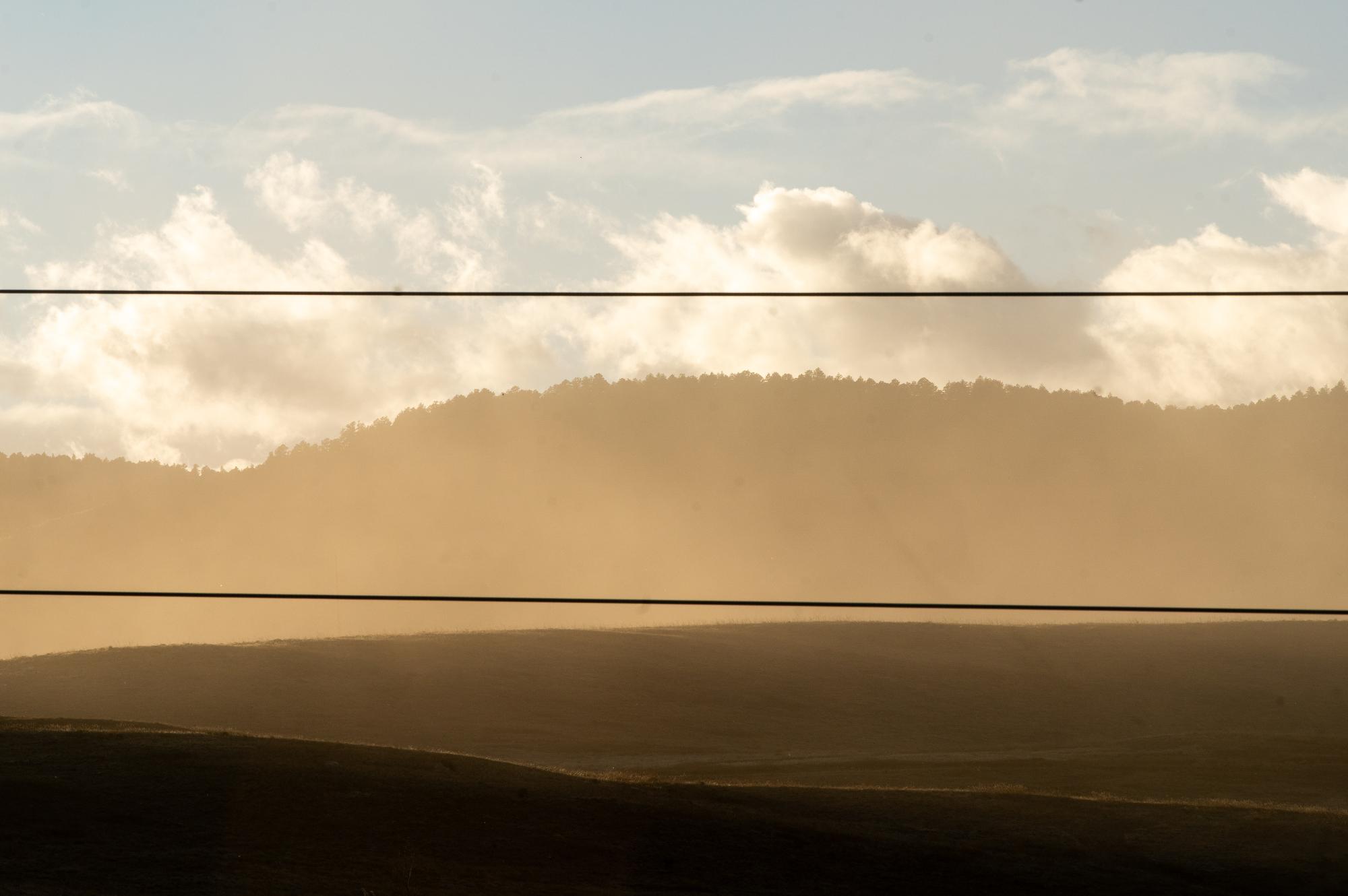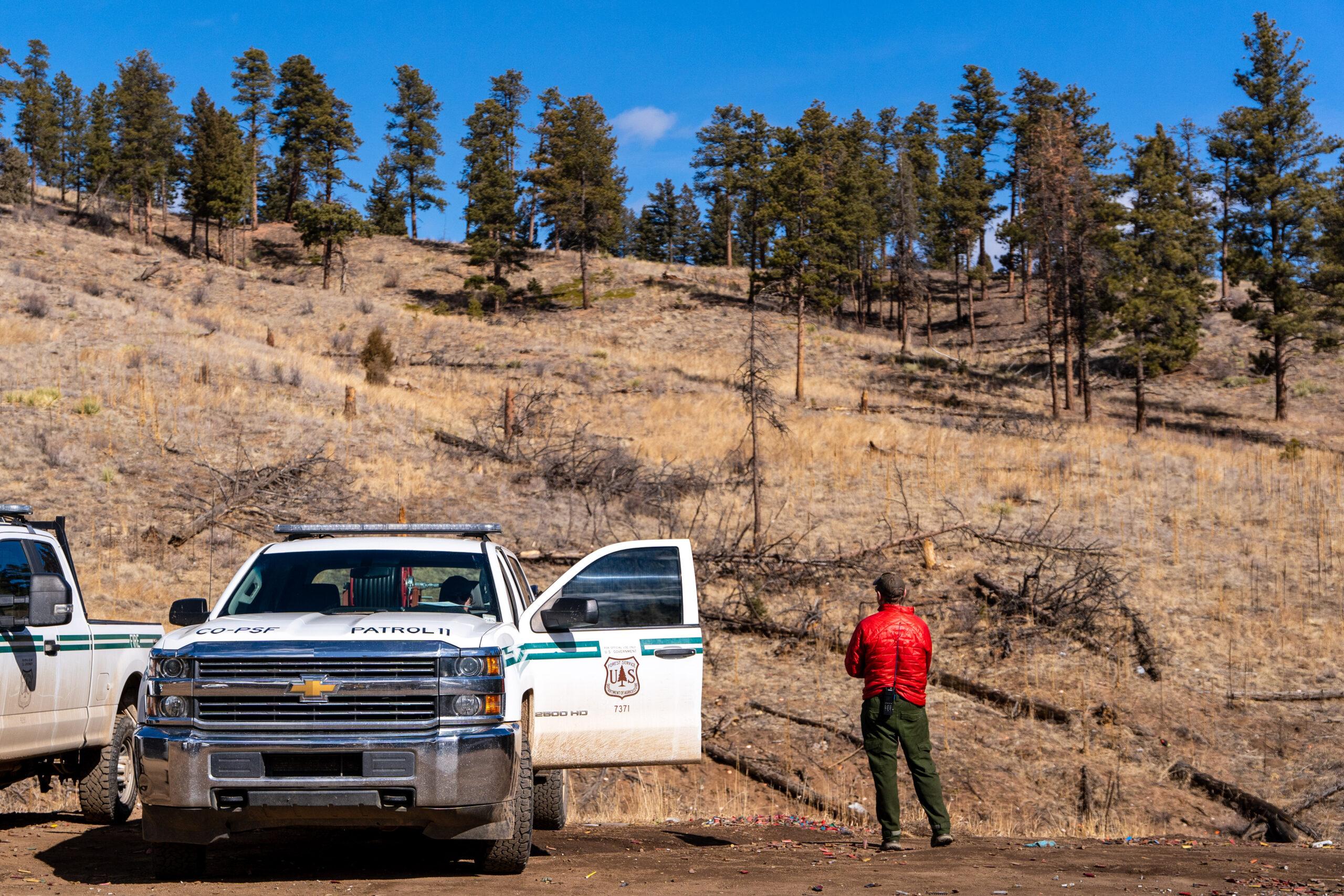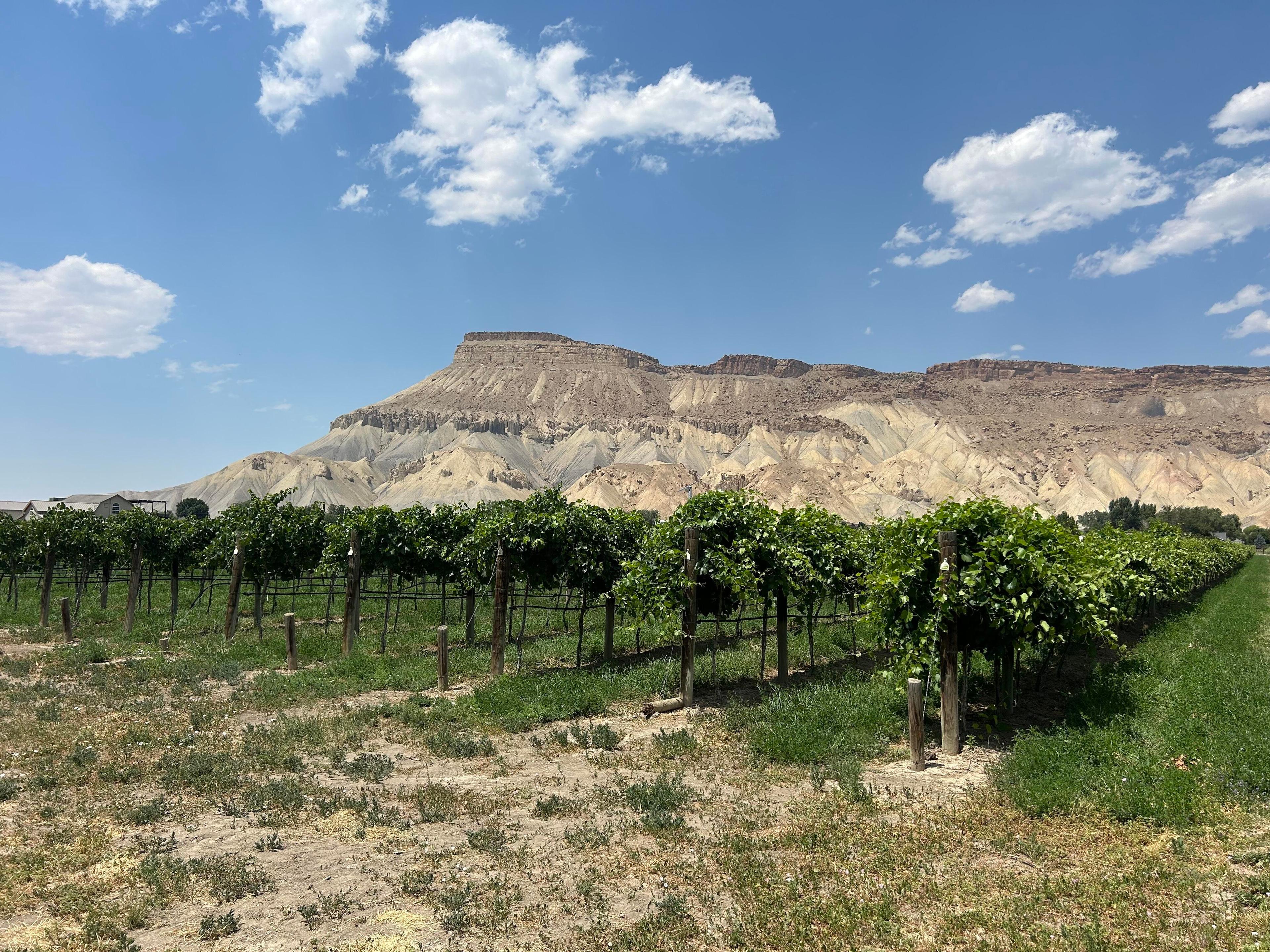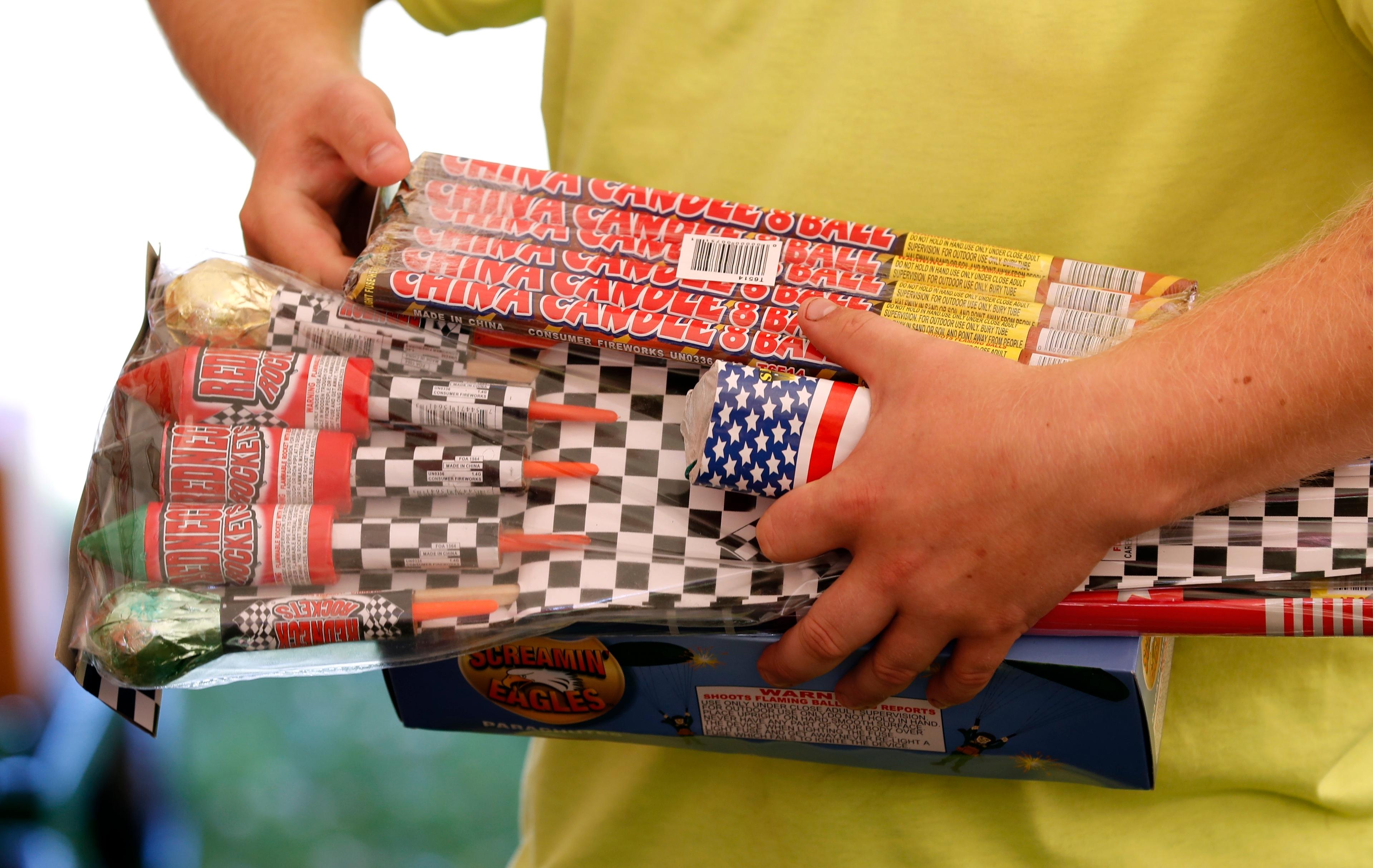
When KJ Becker arrived at her barracks on San Antonio’s Kelly Air Force Base in 1995 for the first day of her new career in the military, a sonic boom above the base blew out windows and set off car alarms. For the then 17-year-old, it seemed the base erupted in frantic chaos.
Two years later, she was deployed to Prince Sultan Air Base in Saudi Arabia shortly following the 1996 bombing of the Khobar Towers, an attack which killed 19 U.S. Airmen and wounded more than 400 U.S. and international military service members.
“I experienced four straight months of distant firepower and distant gunshots,” she said. “Which sounds to me just like the crackling of the fireworks.”
In general, laws surrounding the private use of fireworks are more restrictive in Colorado than in neighboring states. Those that leave the ground or explode — from firecrackers to Roman candles to the so-called artillery shells that burst in myriad colors overhead — are prohibited outside of sanctioned shows from permit-holding professionals.
Local jurisdictions often take the restrictions even further, such as Denver or Colorado Springs where all fireworks are illegal, punishable by fines and jail time. Officials usually justify the bans by citing wildland fire risks.
However, the unexpected explosions of illegal fireworks can also torment some veterans. Becker now lives with her two dogs in the small town of Fowler, on the plains east of Pueblo. She’s on full military disability pay due to PTSD incurred from her time in the Air Force.
She said her neighbors buy large amounts of fireworks from across the northern border in Wyoming, where laws are much more permissive. From June to as late as October, she said the explosions from those fireworks set her on edge about once a week. Around the 4th of July holiday, it’s much more than that.
“I get very frantic,” she said. “I shake a lot and my breathing gets really fast and shallow and I can feel my heart beating in my feet.”
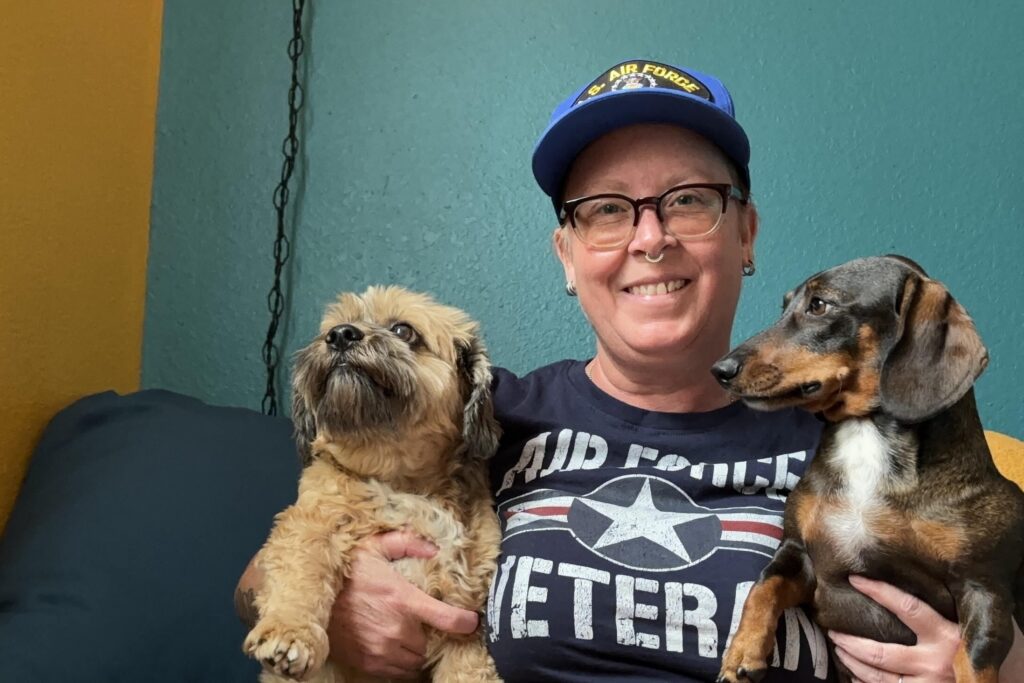
She has purchased fans and speakers to attempt to drown out the noise. She has contacted local authorities with mixed success.
“I do catch a lot of flack for my position on anti-fireworks. I’m told that I should expect it. I'm told that if I don't like it, I should go somewhere where they are illegal,” Becker said. “However, the ones that they are setting off are illegal in Colorado.”
Bob McLaughlin, Executive Director of the Mt. Carmel Veterans Service Center in Colorado Springs, said he knows many veterans who are triggered in one way or another by the 4th of July. Often, it’s sadness over the loss of a friend who died while serving the country whose independence is being celebrated.
“And then, there’s fireworks,” he said. “The real challenge is the unauthorized fireworks because nobody knows when they’re going to go off … You don’t even have to be a veteran to be startled by that stuff.”
For those who do intend to use banned fireworks this holiday, McLaughlin asked they be mindful, to be respectful of those nearby who may be triggered by loud noises. For veterans, he recommends they spend the holiday with loved ones who care.
“Be surrounded with people that you trust and love and know that if you're having an issue, they're there to help you,” he said.
For Becker, even some advanced notice of when her neighbors will set off their fireworks would go a long way.
“Give me a timeframe, so I can prepare,” she said. “I would just ask for some empathy, some understanding.”

